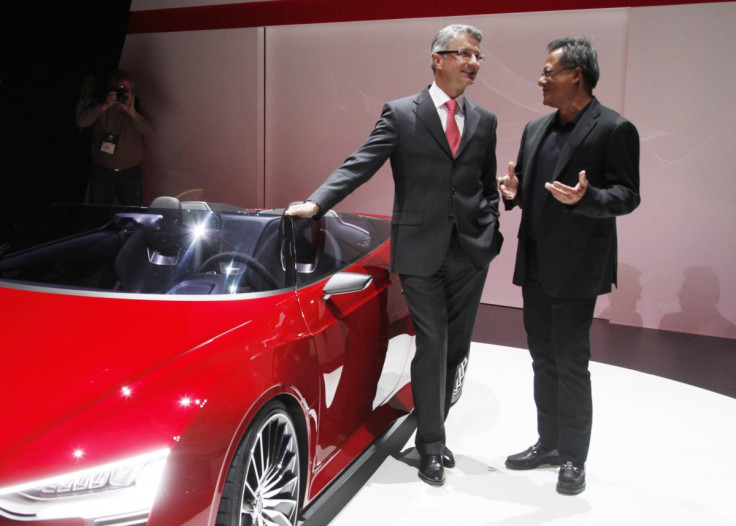Future of Smart Connected Cars to be Driven by Nvidia Tegra K1

Nvidia's new Tegra K1 'super chip' will be the processor of choice for manufacturers of the smart, connected and self-driving cars of the future.
Announced at the CES technology trade show in Las Vegas, the Tegra K1 boasts 192 cores and is tipped to power a wide range of automotive features, from dashboards and cruise control, to safety systems, interactions with other cars, and autonomous driving.
"We believe the car is to be your most important mobile computer," said Nvidia CEO Jen-Hsun Huang.
Handling a deluge of data
Where previous mobile processors lacked power, the K1 will be able to handle a deluge of data streamed from a car's sensors and cameras, which in turn can be used to make the vehicle intelligent and more aware of its surroundings.
Aside from controlling a car's physical aspects, the K1 is also capable of managing futuristic touch screen dashboards, like that seen in the Tesla Model S. Building on this, future K1-powered cars will have large, high-definition interfaces and instrument clusters where physical controls exist today.
The K1 will allow manufacturers, dealers and owners to adjust what their car's user interface looks like, from virtual materials like titanium and aluminium, to stitched leather and carbon fibre.
Nvidia is yet to announce any partnerships with car manufacturers, but its existing relationship with Audi looks set to produce cars using the K1 in the near future.
K1 opens a new chapter for Audi
"Audi and NVIDIA have a long, deep partnership, in which we've utilised three generations of Tegra to bring industry-leading capabilities to the instrument cluster, infotainment and rear seat entertainment systems," said Ricky Hudi, chief executive engineer of electrics/electronics at Audi AG.
"Tegra K1 opens a new chapter for Audi to deliver revolutionary supercomputing advances to the car, paving the way to piloted driving experiences."
Apart from the Tesla and its two quad-core Tegra chips, most cars currently on sale use proprietary processors, resulting in a lack of cross-platform communication and scalability.
Nvidia hopes the K1 will be adopted by a wide range of automotive manufacturers, who will be able to use the processor to issue over-the-air updates, bringing new software features as they are developed.
"Advanced computational technologies are the foundation for turning automobiles into the most innovative, capable and desirable mobile devices in the future," Thilo Koslowski, vice president and lead automotive analyst at Gartner, told the Wall Street Journal.
"By offering over-the-air upgradeability of these technologies, automakers can improve existing in-vehicle features and offer new ones over the course of the vehicle lifecycle."
© Copyright IBTimes 2024. All rights reserved.























